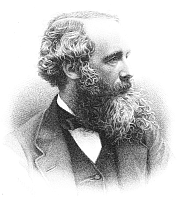 |
Maxwell’s thermodynamic relations | Maxwell Legacy Concepts |
|---|
In a nutshell |
The 'state' of a system is defined by fundamental thermodynamic quantities (see below). Maxwell pointed out that changes in these fundamental quantities are not all independent and there must be relationships between these changes. These relationships are the Maxwell relations. Maxwell's thermodynamic relations were among his less popular output with students of thermodynamiscs because lecturers considered them so important that they were worth memorising. You can see from the image below that simply as objects to be remembered there is plenty of scope for error. A mnemonic such as the one alongside can help when suitably interpreted. The relations are still important but with today's insight they can be derived relatively easily from first principles and with instant access to the web, memorisation is less important than it used to be. Students do still need to know they exist and of course those working in the field will consider them background knowledge. |
|---|
| Technical detail | Thermodynamics has the wide sweep of encompasing changes that can take place in all kinds of solids, liquids and gases. It begins by defining various concepts that try to be applicable to all equilibrium situations. Among these are internal energy, U, pressure, P, volume, V, temperature, T, and entropy, S. These basic concepts define the state of a system. Other quantities appear as useful combinations, like the Helmholtz free energy, F = U - TS, that can be minimised in reactions between components but that is a development. Clearly F depends explicitly on 3 of the earlier quantities. What is less obvious is that the four concepts that appear in Maxwell's relations are not all independent. Thermodynamics is particularly concerned with changes that can take place from one equilibrium state to another (hence the 'dynamics'). Depending on the conditions during the change (e.g. constant volume, constant pressure, constant temperature, constant entropy) what happens is best described by an appropriate choice of fundamental concepts. Maxwell's relations are very useful in relating changes in other variables to the chosen ones. Typically one can choose any two of the 5 concepts (including nternal energy) as independent and the others can be determined. The appropriate two depend on the application and Maxwell's relations direct appropriate changes of variable. They have other uses too. For example, the 3rd and 4th relate readily measurable quantities on the left to less easily determined quantities on the right. Maxwell's relations are not about things going on in a system but are simply relationships between interconnected concepts. They are derived from the mathematics of differential calculus, the calculus of small changes, not from physics. JSR 2016 |
|---|